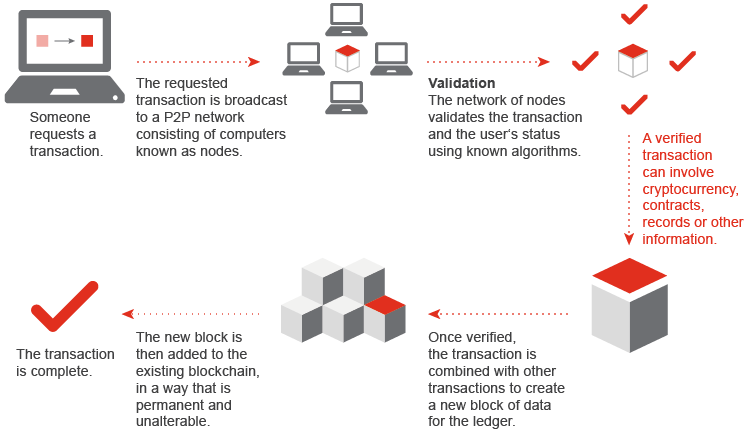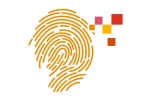Blockchain in Real Estate
Versatile Blockchain capabilities
The blockchain is a decentralized ledger of all transactions through a peer-to-peer network. With this technology, subscribers can make transactions without the need for a central certification authority. Possible applications include cash transfers, transaction settlements, financing and many other. As the name implies, the blockchain is a chain of cryptographically encrypted blocks containing specific information or data. After a transaction, the data recorded within a blockchain can not be changed since the downstream blocks verify the upstream transactions.
In the context of the real estate industry, there are several possible uses for the block chain along the entire property value chain. In the short term, blockchain can be used to transfer the purchase price for real estate transactions using established cryptocurrencies, as well as through initial coin offerings (tokenization). First experiments have already been observed on the market.
For example, Sweden is already working on a blockchain-technology based digital land register. In the medium term, the application of smart contracts is expected. These are electronic contracts based on computer protocols that can automatically monitor the stored clauses or rules and can automatically execute defined actions in the event of a trigger event. Thus, a written fixation in paper form is unnecessary. In the long run, Blockchain will help to significantly increase market transparency and solve principal-agent issues.

In addition to advantages such as the cost reduction of processes, increased transparency and irrevocable documentation of the processes, there are also some disadvantages. Due to the highly complex technology, today there are still major challenges in terms of acceptance and implementation in companies, in particular due to the usually high computing power required and the associated exorbitant power consumption. However, this depends on the technology used. In addition, the regulatory implications are not fully resolved and deter use of blockchain technology.
Future Impact
Today, the practicable use of blockchain in the real estate context is only emerging and very rudimentary pronounced. The first possible applications have mostly been considered theoretically, but a practicable and mass-suitable implication still requires further development.
With the help of Smart Contracts, it will be possible in the future via Blockchain to design rental and purchase contracts, to provide and evaluate the necessary data for real estate valuation, to commission service providers along the value chain, to map real estate data and to store sensitive data.
With this help, all service providers, contracts, authorities, administrators, etc. could be connected and managed decentralized. Especially in connection with IoT (Internet of Things) a variety of applications are conceivable. Blockchain is not a panacea. However, if a common database is needed in a network that lacks trust but requires multiple and open access, blockchain may be the technology of choice. It is a very complex but promising technology that requires considerable technical knowledge and still requires intensive research to make meaningful use of its enormous potential.
Startups
- ChromaWay AB
- Ledger Leopard
- RealBlocks
- SafeChain
ChromaWay AB
Chromaway wants to simplify the land register using Blockchain technology. Especially cost and time are saved at the property acquisition through technologically supported land register rewriting.
Ledger Leopard
Ledger Leopard is an international company that provides a blockchain platform for developers and businesses. The Ledger-Leopard platform is an Ethereum-based API solution that makes it easy for developers and businesses to work with the added value of blockchain technology without starting from scratch.
RealBlocks
RealBlocks is a decentralized investing platform that connects users globally and allows them to raise and invest capital in real estate.
SafeChain
SafeChain uses a combination of identity verification and bank authentication technology to help title Agents eliminate the threat of wire fraud and keep their customer’s funds safe.
Contact us


